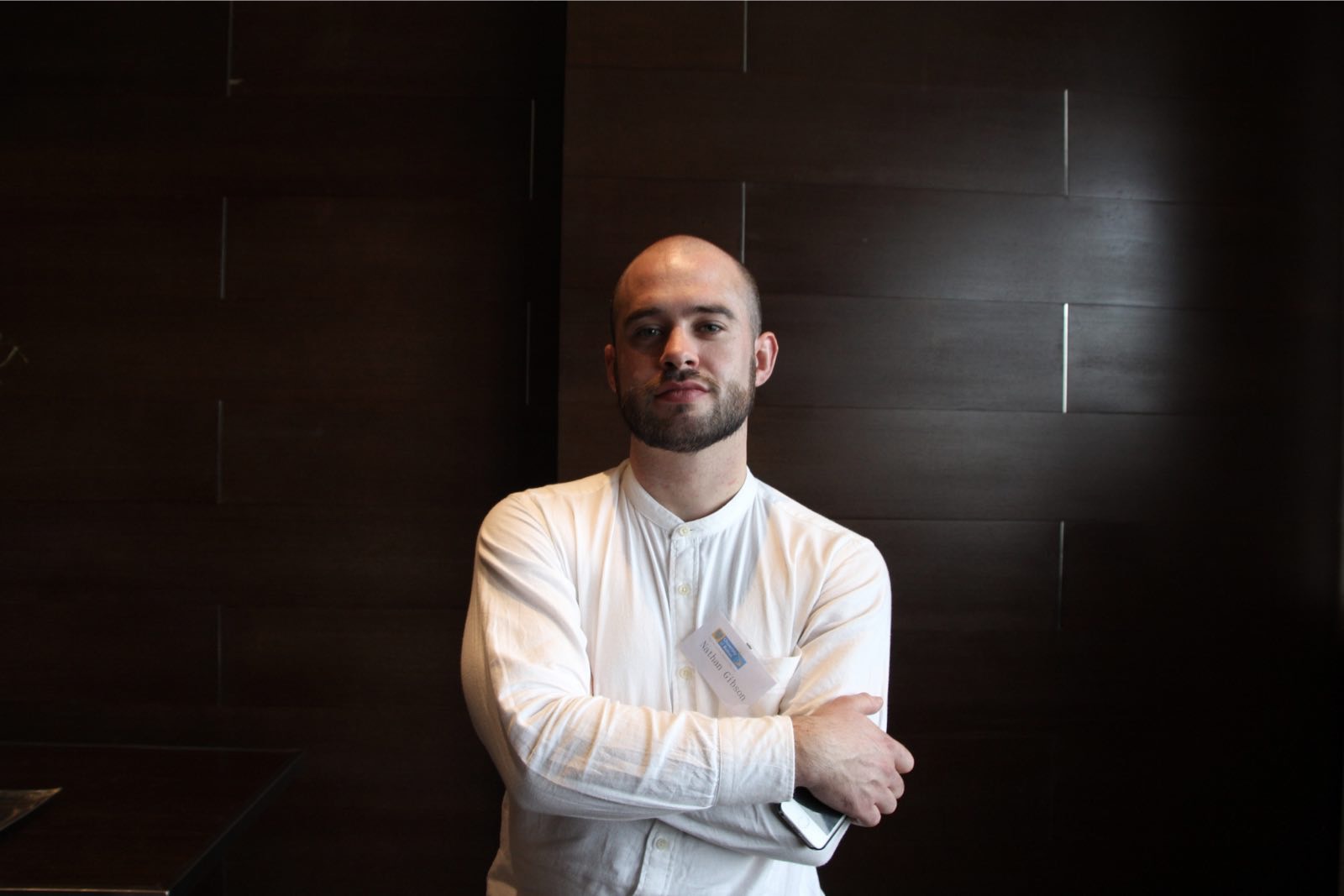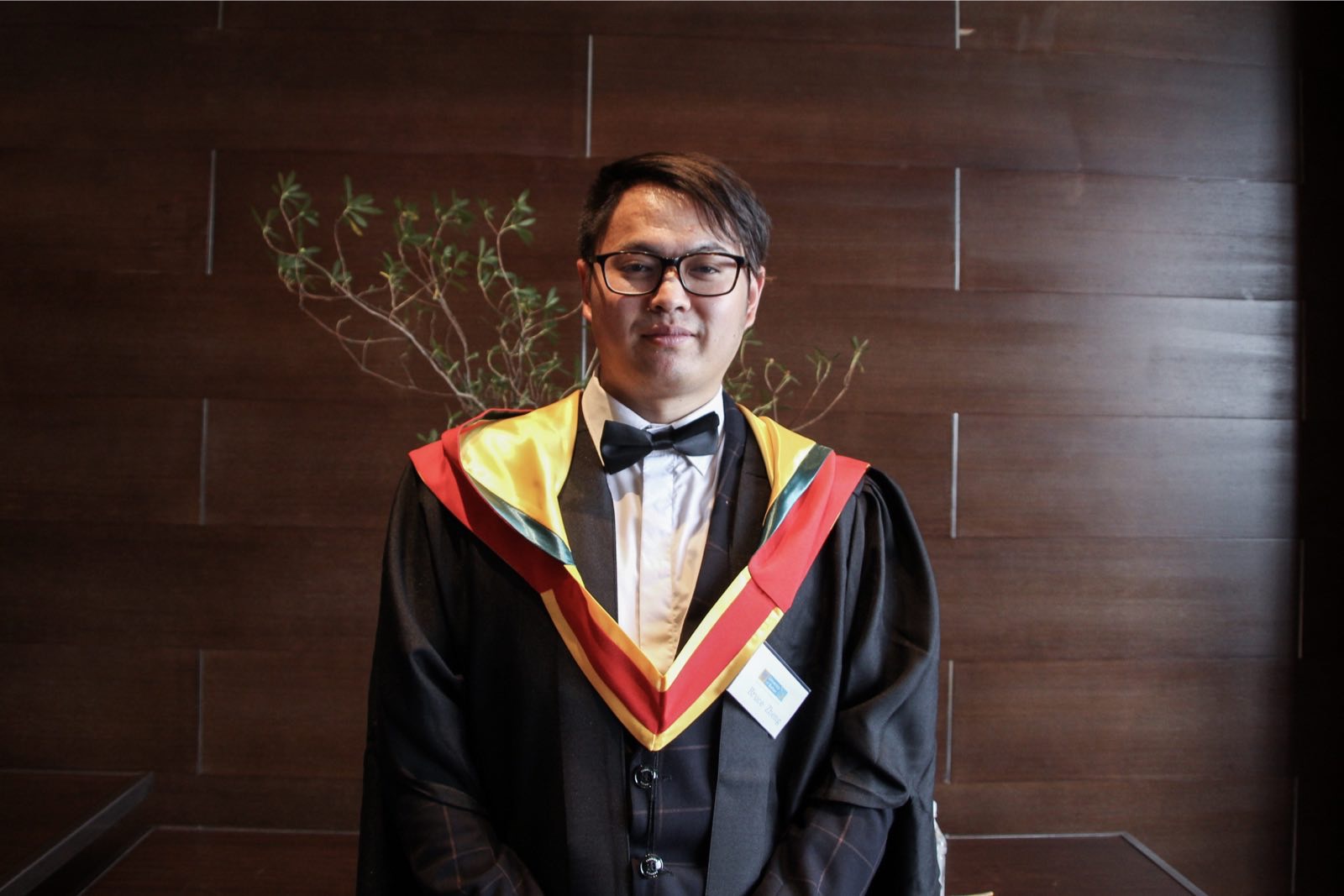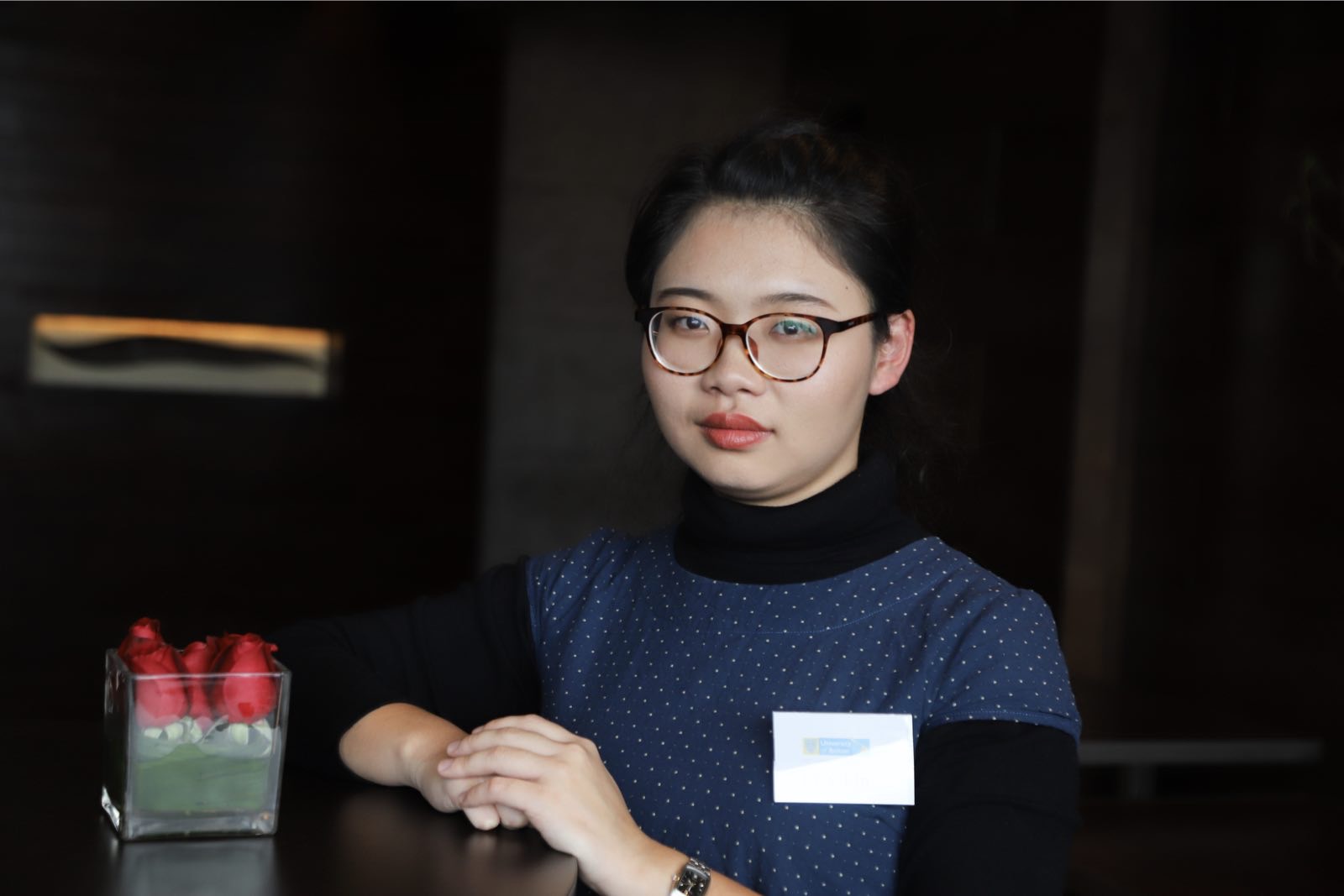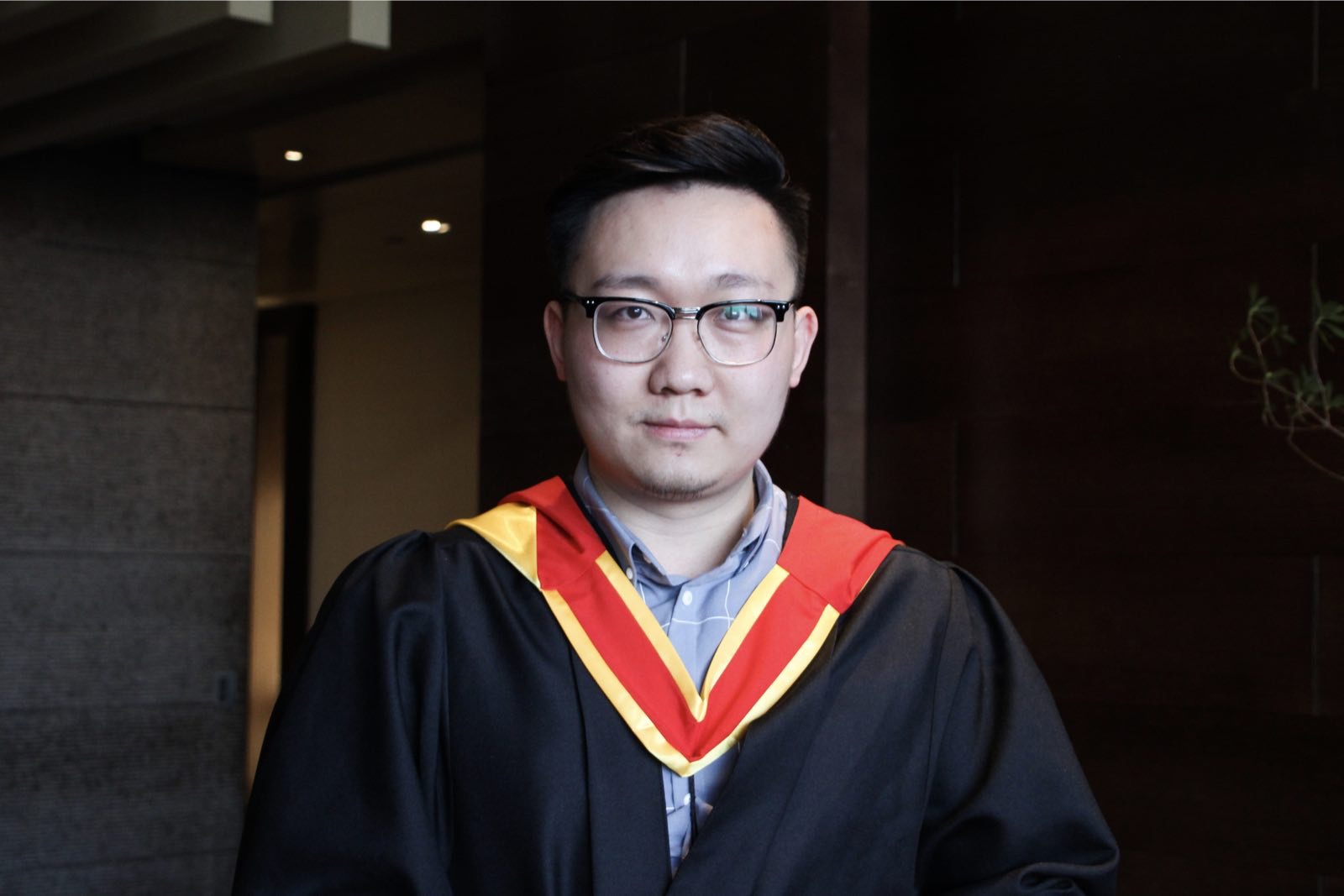In October the UoB-BFSU International Multimedia Journalism MA Program held it’s annual graduation event. A total of 18 students graduated and the event was also attended by #IMMJMA alumni and partner media organisations such as China Daily and CGTN.
Stacy Xue, one of our current 17/18 cohort caught up with some graduates and alumni to find out more about their experiences and best tips for studying multimedia journalism.
Take a look at our showreel compilation of final projects produced by students of the MA in International Multimedia Journalism (above). We are really proud of them!

Class of 16/17, 31 from the UK. Nathan worked as a photographer and videographer before studying the IMMJ program. He’s currently looking for opportunities to extend his final project and for jobs in the field of multimedia storytelling. He’s happy to work anywhere on the globe!
“I love working with different people and finding stories, freelancing provides a really great opportunity to access different cultures and parts of the world that you might not access otherwise. Multimedia journalism gives you the tools to bring these stories to people who may not see them otherwise and you get to contribute to global discussions and narratives.”
“Work hard! Don’t give up! Make sure your ideas and stories are focused. Pay attention to learning practical technique early with plenty of practice in Term 1. Become familiar with your own equipment and understand your tools so that when you get into the field you can use them easily. Because ultimately cameras are just tools, the story is the most important part and you’ll need to focus on the story, not your camera!”

Class of 16/17, 25 from Zhejiang. Bruce taught English before studying the IMMJ program. His final project will soon be published in Sixth Tone and he hopes to work in an official news media outlet.
“The IMMJ program is a big challenge. You need a strong mind and the determination to stick to projects without fear.”
“There is a lot of independent practical study and there are always problems along the way, sometimes at first you may feel they are impossible to overcome, but it’s just a question of problem-solving and tenacity.”
Class of 15/16, 27, from Xiamen. Cicy graduated from Fujian Normal University before studying the IMMJ program. She currently works as a documentary filmmaker and producer.
“I’m currently shooting documentaries, I’ve established my own company with five co-partners and gathered a team to produce documentaries”. City client list already includes big names like Sixth Tone and CTGN, and she says she’s always on the lookout for new and quality platforms to publish with.”
“You need a healthy body to have enough power to carry your equipment. Also importantly, you should find issues that you are really passionate about, that way you can stick with the topic and go deep. Eventually, you’ll become an expert in that area making it easier for you to access and make deep and quality multimedia reports.”
“Multimedia journalism requires one to think about and balance many things at the same time. You need to think clearly about how to use each media element. It is not just a collection of all media elements, instead, there should be a process with a specific planning and logic.”
Class of 16/17, 26 from Xi’an. Kefeng continued working as a TV host in Xi’an while studying the IMMJ program.
“The program is really helpful for someone like me already working in the media field, especially the focus on high-quality editing. I have gained a deeper understanding of journalism, and a broader thinking when reporting. I have learned the importance of thorough research to deliver the relevant context to my audience.
“My advice is to pay attention to both theory and practice. Communicate regularly with your tutors and classmates – they are all very helpful. I prefer to choose topics with social value or social impact because they are interesting and important to a wide audience. It’s important to select a tight angle or focus because if your approach to a story is too general you can’t cover it in a meaningful way.”

Class of 14/15, 31 from Australia. Christine was a keen photographer before studying the IMMJ program. Since graduating she’s worked at CRI as Multimedia editor and is now teaching Visual Journalism.
“Work hard and never give up. Take as many opportunities as you can to practice filming people and scenes with your equipment before shooting your real projects.”
“It’s multimedia journalism, so try out different mediums, get some basic knowledge of all and find the ones you like best!”
“Keep on top of current affairs, read lot news and multimedia journalism features. Never stop!”
Class of 08/09. 40, from Shanghai. Changhe worked as a photo editor and established the Oriental Morning Post in 2003 before taking the IMMJ program. Since then he helped to develop The Paper, or Pengpai (澎湃), an online news startup launched in 2014 and the first Chinese web-based news organization to create a mobile app featuring its own original content. Chang He now works at Pear Video and manages the UGC content.
Chang He has been an important pioneer of online media in China. He says, towards the end of his time working in print news, he felt the weakening of the industry. And as a visual storyteller, he felt many people around him were facing a similar sense of crisis that they may become redundant.
“But actually, journalism has its logic and path, as journalists, we need to take advantage of the internet in order to spread our stories widely.”
“I have my opinions and predictions but they are just ideas because the development the of the internet is still evolving. There is no common model because the changes are complex and diverse. So, it’s important to continually master new skills, learn and adapt to new things to stay in step with the fast pace of development.”
“In addition, journalists today should learn to interact and engage with their audience and foster an ‘online personality or presence’, someone who has journalistic credibility and who also has popular appeal on the internet. You should foster your own personality and become an opinion leader in order to receive sustained interest from an audience. So my biggest advice for IMMJMA students is to consider their online brand and personality for the future.”
“One final thing you should bear in mind is not to avoid or run away from a problem or challenge. Just face things and solve them. This is the real spirit of the IMMJMA program and students in my opinion.”
Echoing Chang He, multimedia journalism is full of daily challenges, the IMMJMA is a practice-led program and students can learn from both their successes and their failures to develop the tenacity to face challenges and find solutions. On graduation, you will find you are prepared for a tough but incredibly rewarding career in multimedia storytelling.




